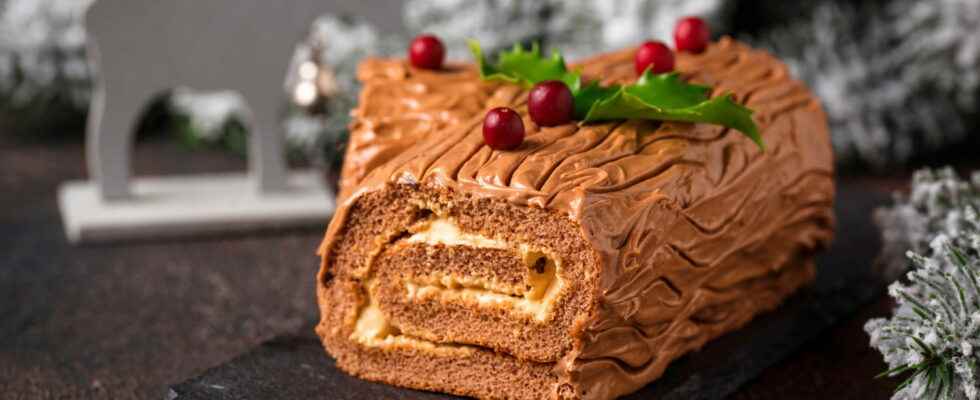Christmas plants decorate interiors, cakes or logs during the holiday season. But be careful, mistletoe, holly or poinsettia can be toxic to your health and cause digestive symptoms if the berries or leaves are accidentally ingested. Photos and tips.
Decorative Christmas plants like the holly, the mistletoe or the poinsettia are frequently used to decorate cakes, logs, the interior of the house or the garden. But beware, ingestion of berries or leaves by children, adults (or animals) may be poisonous and cause more or less serious symptoms depending on the quantities consumed, recalls ANSES in a press release dated 15 December 2022. Each year, poison control centers receive between 60 and 80 calls for children under the age of 15 who have accidentally put holly berries in your mouth. And nearly 40% of cases occur during the holiday season between December and January. What are the warning symptoms not to neglect ? What to do in case of ingestion? Who to call ? What health risks ?
Which Christmas plants are toxic to health?
ANSES has listed three christmas plants that would pose health risks if accidentally ingested:
- Holly (Ilex aquifolium): the leaves, branches and red berries are often used to make Christmas wreaths or to decorate cakes or logs
- the mistletoe (Viscum album): the branches can decorate the house and the garden at the time of the festivals, sometimes the pastries.
- the poinsettia (Euphorbia pulcherrima) or “Christmas star” is a decorative flower very popular at the time of the holidays.
Photos to recognize Christmas plants
What are the warning symptoms?
Attention, the berries or fruits of holly or mistletoe are not edible! Same for the leaves.
► Ingestion of one or two holly berries causes no symptoms or only minor digestive disturbances (nausea, vomiting, abdominal pain). On the other hand, ingesting a greater number of berries can generate more pronounced symptoms such as significant salivation, persistent vomiting and diarrhea, even drowsiness or seizures. Note that holly leaves and berries are also toxic to pets in case of ingestion (dog, cat…). They may show digestive signs (diarrhoea, vomiting, etc.) or even neurological signs (drowsiness, coma, etc.) in the event of ingestion of a large quantity of berries.
► Ingestion of a small number of mistletoe berries does not cause symptoms or causes minor digestive signs (vomiting, diarrhea…). In case of ingestion of a large number of berries, one can observe heart problems (heart rhythm disorders, drop in blood pressure, etc.) or neurological (drowsiness…). The mistletoe leaves and berries are equally toxic, even fatal, if eaten by pets
► Poinsettia leaf mouthing can cause minor digestive problems in the child. On the other hand, in your pet, the chewing of several leaves or stems can have more significant consequences: digestive disorders, excessive salivation…
What to do in case of ingestion of Christmas plants?
► If the child has put leaves or berries of holly, mistletoe, or other ornamental plants in the mouth: clean his mouth with a wet clothdon’t make him drink and call a Poison Control Center (24/7).
► If your animal is poisoned, call a veterinary poison control centre.
► In any case, save the label or a photograph of the plant to facilitate identification.
Sources: Decorative plants – ingesting them can be toxic for humans and animals, ANSES, 15 December 2022 / Poison control center
